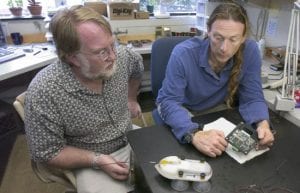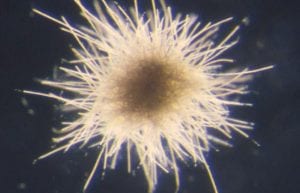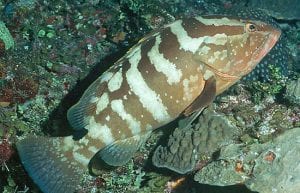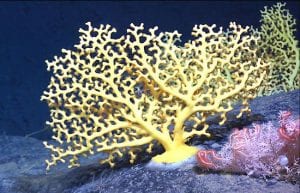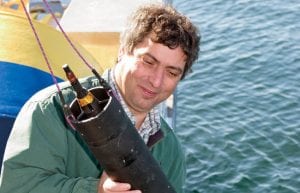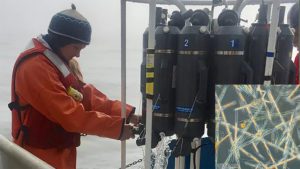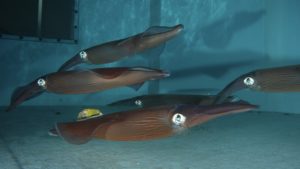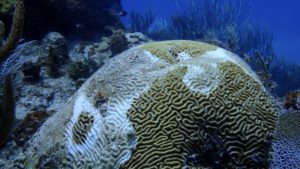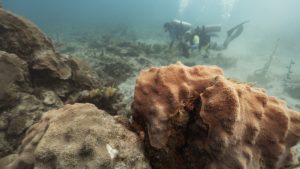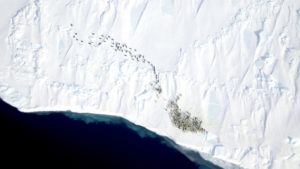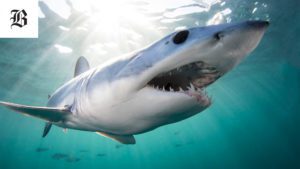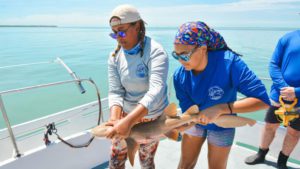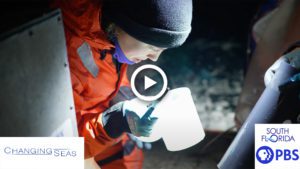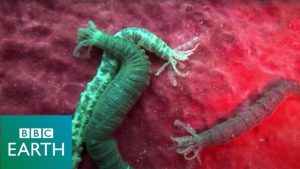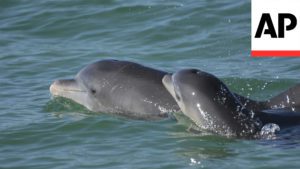Research Highlights
Oceanus Magazine
News Releases
The National Institute of Environmental Health Sciences (NIEHS) and National Science Foundation (NSF) have announced that the Woods Hole Oceanographic Institution (WHOI) will receive funding to continue operating the Woods Hole Center for Oceans and Human Health (WHCOHH).
Newly developed bioadhesive sensors (BIMS) are effective and less invasive than traditional tagging. Scientists can attach them with a thin layer of dried-hydrogel in less than 20 seconds.
Researchers from WHOI studied the microbes in coral reef water by examining eight reefs in the U.S. Virgin Islands over a period of seven years, which included periods of hurricane and coral disease disturbance.
Researchers at WHOI demonstrated that replaying healthy reef sounds could potentially be used to encourage coral larvae to recolonize damaged or degraded reefs.
High resolution satellite imagery and field-based validation surveys have provided the first multi-year time series documenting emperor penguin populations.
News & Insights
MIT-WHOI Joint Program student Jaida Elcock celebrates Shark Week and shark awareness in this Q&A
At the northernmost year-round research station in the world, scientists brave frigid temperatures and perpetual night to solve an ocean mystery. The team is trying to figure out how some of the tiniest animals survive at a time of year when their main food source is not available.
WHOI’s Jaida Elcock and Lauren Dykman explain why parasites may be a sign of ocean health

